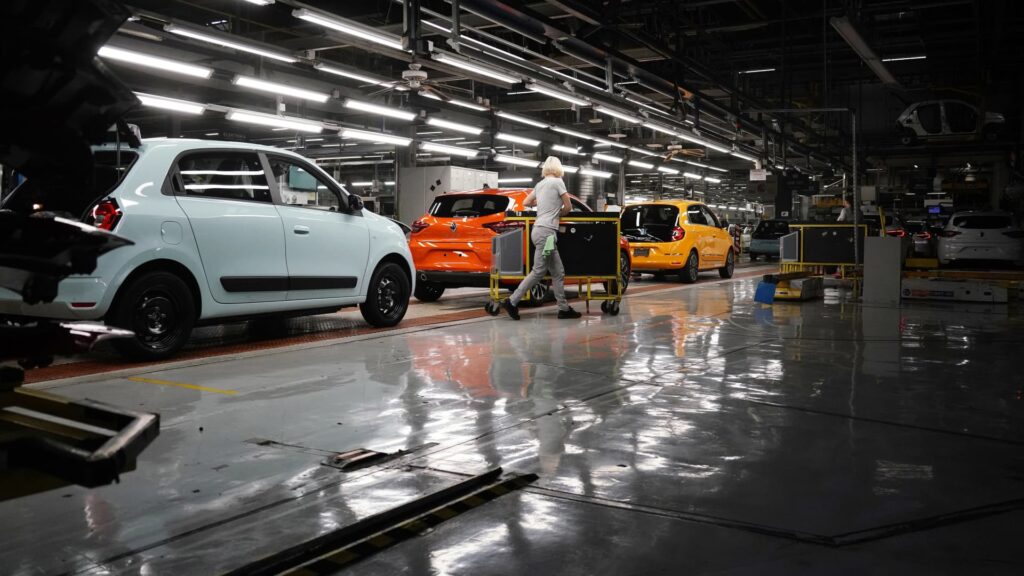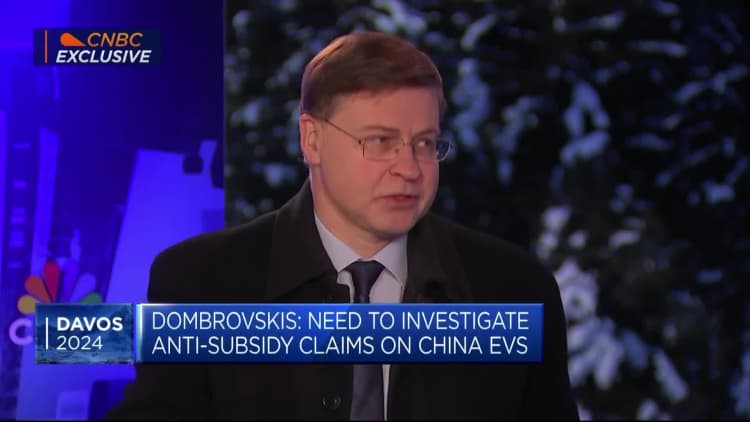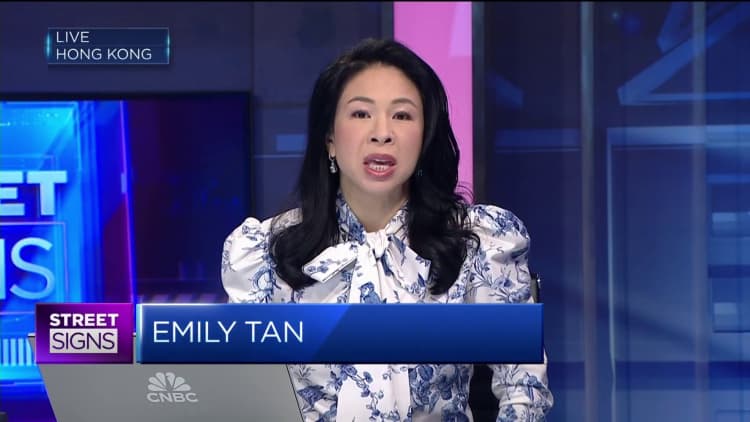
A Renault Espace E-Tech full Hybrid (L) and a Megane E-Tech 100% Electric EV (C) are displayed during the Geneva Motor Show 2024 at Palexpo on Feb. 26, 2024 in Geneva, Switzerland.
John Keeble | Getty Images News | Getty Images
Renault’s chief executive on Tuesday said that European policymakers should take inspiration from China as they look to boost the region’s automotive industry in an increasingly tough landscape.
In a report signed by Renault Group CEO Luca de Meo, the auto industry was described as a “pillar of the European economy” that was “facing an onslaught of electric vehicles from China.”
It comes after numerous auto firms — both within and outside of Europe — said that competition from China was among the biggest challenges to their business outlook.
The French automaker argued that Europe’s auto sector was suffering from an “imbalance in competition.” It cited the tax credits granted for green manufacturing projects in the U.S. Inflation Reduction Act, and the hefty subsidies reportedly being given to domestic manufacturers by the Chinese government.

Europe also faces significantly higher energy costs than both markets, the report said, and 40% higher wage costs than China.
The European Commission, meanwhile, is set to introduce up to 10 new regulations each year between now and 2030, placing businesses “at a huge disadvantage” as they struggle to meet new deadlines, it said.
‘Team sport’
As it looks to address these issues, Renault suggested that Europe take note of how China has supported its own auto industry and proposed a range of policies.
European Union politicians need to develop a new industrial strategy for the region and “deploy a regulatory framework with a stable base but open-ended content, on the same lines as the Chinese model,” the report said. It called for the creation of a body to assess the impact of auto industry regulations.
It also suggested the establishment of “green economic zones” which receive subsidies and tax breaks, inspired by China’s “special economic zones.”
Describing the energy transition as a “team sport,” the report said the EU should oversee a deal between the private and public sectors to shore up funding for electric vehicle development on a “European level.”
“Under pressure from financial markets, European manufacturers are often forced to focus on short-term profits rather than making the investments necessary for the long term, with no guarantee of a return. China has solved the problem by consolidating all its forces, including financial institutions, around a single goal,” it said.
In another reference to China, Renault called for a renewed focus on the development of smart autonomous vehicles, taking inspiration from the country’s setting of common standards in the field. This could see manufacturers share roughly 70% of the technical content of such cars.
“The smart connected vehicles developed in this way will be virtuous in three ways: smoother traffic flows, lower energy consumption and fewer deaths on the road,” it said.
‘Growing signs of weakness’
Renault’s report notes that the automotive sector is of significant economic importance for Europe, accounting for 8% of total gross domestic product, employing 13 million people and boasting a trade surplus of 102 billion euros [$110.80 billion] with the rest of the world.
“At the same time, the automotive industry is a huge source of revenue for government, generating 392 billion [euros] and over 20% of tax revenue within the European Union,” the report said. “Nevertheless we are seeing growing signs of weakness that could be a cause for real concern if nothing is done.”








